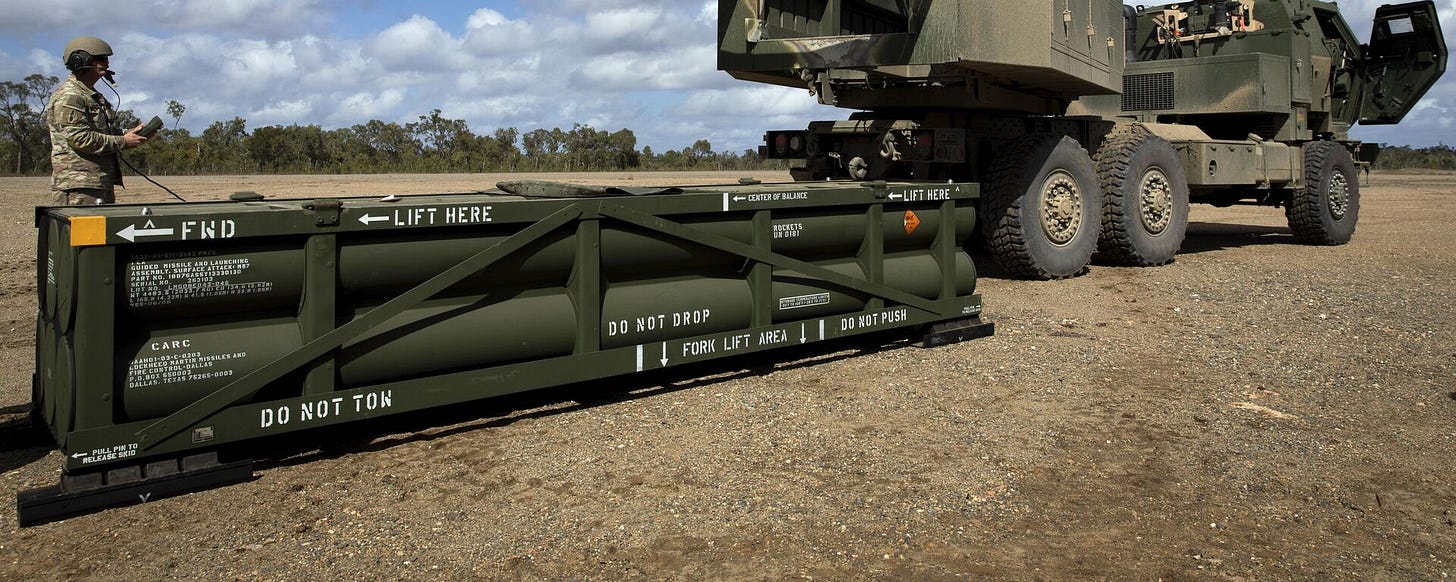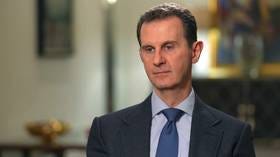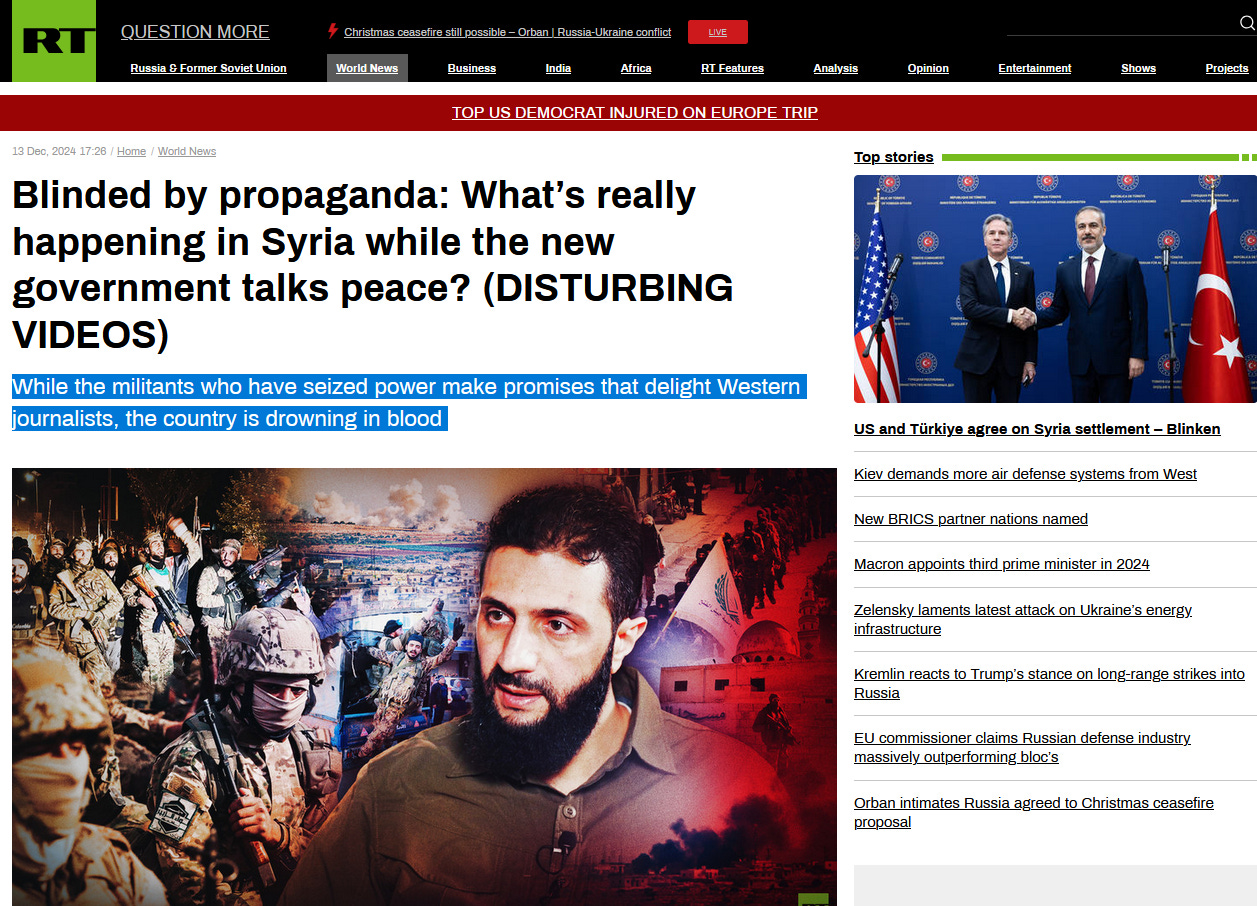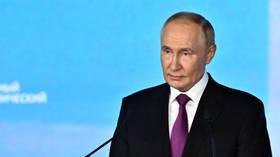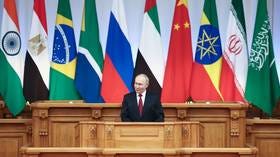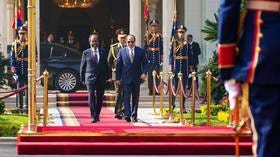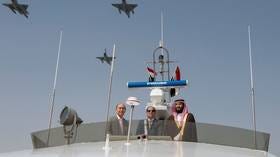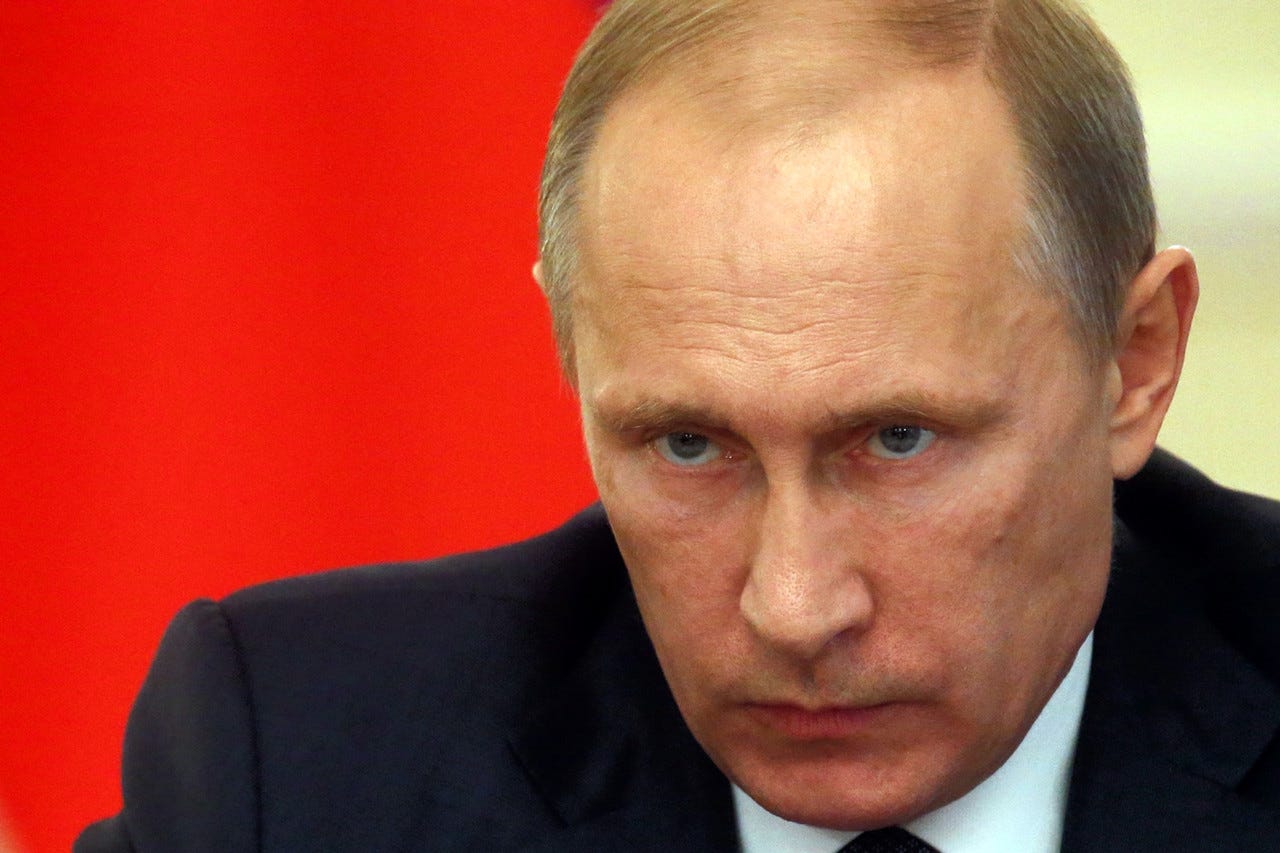RUNNING UPDATES ON THE CONFLICT IN UKRAINE - 14.12.2024
Including geopolitical issues affecting the balance of power in the ongoing end game war to establish our common future, a closely monitored prison planet or tolerance for diverse modes of governance.
Please note: We will be in Türkiye for the next few days.
Updates will be sporadic and perhaps absent during this time. The alteration in time zone will also change the timing of all email notifications.
Our apologies for these alterations to your daily updates.
WILL THE FINAL, DESPERATE CARD THAT THE USA, UK & EU PLAY IN UKRAINE A NUCLEAR, BIOLOGICAL OR CHEMICAL WEAPON FALSE FLAG EVENT?
COLLECTIVE WEST | RUSSIA
ALEXANDER MERCOURIS of THE DURAN: Moscow Mistrust Erdogan Affects Bases Talks; US Alarm Russian Advance Kurakhovo, Pokrovsk.
ALEX CHRISTOFOROU of THE DURAN: Yoon, Elensky CURSE. Trump, day one UKRAINE ceasefire. Pokrovsk panic. GEORGIA, Salome refuses to go.
ALEX CHRISTOFOROU & ALEXANDER MERCOURIS of THE DURAN: Partitioning Syria. HTS is a shadow.
Russia Strikes Ukrainian Energy Infrastructure in Retaliation for Attack on Taganrog.
The attack was carried out in retaliation for Kiev's use of six ATACMS missiles against an airfield in Russia's Taganrog on December 11.
The Russian Armed Forces conducted a massive strike on critical fuel and energy infrastructure in Ukraine that supported the operations of its defense industry, according to the Russian Ministry of Defense.
"In response to the use of American long-range weapons, the Russian Armed Forces launched a massive strike with long-range, high-precision air- and sea-based weapons, as well as strike drones, targeting critical fuel and energy infrastructure in Ukraine that supports the functioning of the defense-industrial complex," the ministry stated.
The goal of the strike was achieved and all designated targets were hit, the ministry emphasized.
Ukraine's Attack With ATACMS Missiles on Russia's Taganrog Airfield Won't Go Unanswered - MoD
BRIAN BERLETIC: Syria, Ukraine, and Other Fronts in the War Between US Primacy & Multipolarism.
GARLAND NIXON - MARK SLEBODA: TRUMP, XI, ORBAN AND TALK OF UKRAINE COMPROMISE.
DANIEL DAVIS: Biden Fast-Tracking More War in Ukraine.
Malema's FEARLESS Speech on Russia-Ukraine Conflict Causes Shockwaves.
Russia’s Vostok Battle Group Liberates 7 Towns in One Month.
Russia’s Vostok group of forces has liberated seven towns and taken control over more than 300 square kilometers (115 square miles) in a month, the Russian Defense Ministry said on Friday.
Russian Defense Ministry Andrey Belousov held a working meeting at the Vostok command post, during which he received commanders’ reports.
"The commander of the Vostok group of forces, Lt. Gen. Andrey Ivanaev reported to the Russian defense minister that during the month the group’s units have liberated seven settlements and taken control of a section of territory with a total area of over 300 square kilometers," the statement read.
Why US and Its NATO Allies Can't Intercept Russia's Oreshnik Missiles
Ivanaev also stated that, due to the effective use of high-precision weapons and attack drones by the Russian military, the enemy had suffered significant losses in both equipment and personnel.
The ministry also mentioned that Belousov had been presented with the results of the weapons modernization to increase effectiveness in the fight against enemy drones and communication equipment, as well as with samples of robotic complexes. The minister has expressed gratitude to the command staff for their combat performance and presented state awards to outstanding military servicepeople, the ministry added.
COLLECTIVE WEST | GLOBAL MAJORITY
Blinded by propaganda: What’s really happening in Syria while the new government talks peace? (DISTURBING VIDEOS)
While the militants who have seized power make promises that delight Western journalists, the country is drowning in blood.
Since the start of the large-scale offensive by Hayat Tahrir al-Sham (HTS) and allied opposition groups, the HTS-led Syrian Salvation Government has issued a series of loud statements.
The first concerned Russia and its support of the Syrian authorities. Russian troops were the only ones to oppose the advancing opposition forces, and the rebels urged them to end the strikes on terrorist positions, claiming that such actions would only result in civilian casualties. The Syrian Salvation Government said that its actions were aimed against the Syrian authorities, not Moscow, with which the militants intend to establish mutually beneficial cooperation.
Next, the Salvation Government released statements concerning neighboring countries. It called on Iraq to close its borders and prevent pro-Iranian groups from entering Syria to help exiled President Bashar Assad. Additionally, the rebels proclaimed that they would protect all foreign embassies, humanitarian organizations, and journalists.
Read more: Why the West cheers for Al-Qaeda successors taking over Syria
A separate statement was issued regarding chemical weapons, their production facilities and storage sites. The Salvation Government assured media that these weapons would never be used and would not fall into irresponsible hands, and invited relevant international organizations to monitor them.
Some of the rebels’ most notable promises were made to ethnic and religious minorities in Syria, including Kurds, Alawites, Christians, and Shiites. The Salvation Government declared that no minority would face genocide or persecution for their views and beliefs, since they are an integral part of the Syrian nation. It also said that inclusivity is the strength, not the weakness, of the future Syria.
In addressing the Kurds, the rebels condemned the barbaric practices of ISIS, such as murder, slavery, and other brutal actions committed against the Kurdish population by jihadists. They also guaranteed the safety of Syrian soldiers who laid down their arms and surrendered.
These statements by the Salvation Government and the HTS leader, Abu Mohammad al-Julani, were met with enthusiasm by prominent experts of Islamic radicalism and fundamentalism. They praised al-Julani’s professionalism, transparency, and moderate views, and the fact that he distanced himself from his jihadist roots.
Assad’s collapse was coming – everyone just looked away
Western media picked up this narrative and, in an attempt to whitewash the rebel leader, CNN released an exclusive interview with him. In this interview, al-Julani repeated the above-mentioned statements made by the Syrian Salvation Government and noted that the ambitions of HTS and its allies are confined to Syria, which should reassure potential adversaries and key regional players. The goals of HTS, he claimed, were to overthrow Bashar Assad and then to start “building Syria” – and the rebels had already achieved the first goal.
However, as often happens, the statements issued by the rebels were far from the truth. HTS terrorists and allied opposition groups have already released dozens of videos demonstrating executions of members of Arab-Kurdish forces, Syrian soldiers (even those who surrendered voluntarily), Alawites, and Shiites. In several video clips, militants are seen slitting the throats of their captives.
Additionally, there are videos of the rebels hunting down former soldiers, which they refer to as “patrolling” or “clearing” an area. Mostly, their targets are shot on the spot. In addition, the rebels have published dozens of video messages threatening various minorities and neighboring countries. Some of them claim that the coup in Syria gives them the freedom to destroy Israel and liberate Palestinian territories.
Russian-speaking terrorists from the Jaish al-Muhajireen wal-Ansar and Ajnad al-Kavkaz jihadist militant groups, whose former leader and certain members are currently fighting in the Russia-Ukraine conflict on the side of Ukraine, have threatened that their next target will be Russia.
The actions of Hayat Tahrir al-Sham and affiliated opposition groups have nothing in common with the rebels’ public statements. They stand in stark contrast to the promises of a measured and moderate stance when it comes to the future of Syria and the status of its minorities.
Since the Syrian Salvation Government was established in 2017, we have closely monitored the rebels’ statements and propaganda. The militants claim that peace and stability reign in the areas under their control in Syria’s Idlib governorate, where all problems are resolved effortlessly; and al-Julani, they say, would have no trouble applying his “invaluable experience” of governing Idlib to the rest of Syria.
In reality, the population was facing immense economic and social hardships. Even significant financial support from Türkiye failed to make a difference. The funds were simply embezzled by the leadership of Hay’at Tahrir al-Sham. Abu Mohammad al-Julani established an absolute totalitarian regime where torture, abduction of dissenters, and extrajudicial killings thrived. In Idlib province, weekly protests against HTS and its leadership took place. Al-Julani even resorted to orchestrating terrorist attacks, human trafficking, and a drugs trade. This was confirmed by Abu Ahmed Zakura, the former chief financier and head of security for the group, who fled Idlib in December 2023.
Click on link below to watch videos:
SYRIANA ANALYSIS: Syria: How HTS & Jolani's Army Could Turn Into a Burden.
BRIAN BERLETIC: Syria, Ukraine, and Other Fronts in the War Between US Primacy & Multipolarism.
INTEL Roundtable w/ Larry Johnson & Ray McGovern : Weekly Wrap.
COLLECTIVE WEST | BRICS
New BRICS partner nations named.
Cuba and Bolivia are to join the economic group next year, Russian Deputy Foreign Minister Sergei Ryabkov has said.
Cuba and Bolivia are expected to officially join BRICS as partner states on January 1, Russian Deputy Foreign Minister Sergei Ryabkov has said.
In an interview with the Izvestia newspaper on Friday, Ryabkov confirmed that both countries had received invitations.
“We are confident that everything will work out in terms of their joining the group as partners,” the diplomat said.
The new ‘partner country’ status was approved at the BRICS summit in October, hosted by Russia in Kazan, and is intended to serve as an alternative to membership after more than 30 nations applied to join the organization.
Following the gathering, Russia, which at present holds the group’s rotating presidency, announced that 13 new countries could become BRICS partner states after the new status was introduced.
BRICS initially comprised Brazil, Russia, India, China, and South Africa, and was expanded earlier this year to include Egypt, Iran, Ethiopia, and the United Arab Emirates.
The group is now holding consultations with the invited nations to formalize their membership, Ryabkov told the outlet.
READ MORE: Russia’s closest ally becomes BRICS partner
Earlier, Belarus announced it had officially accepted the invitation to become a BRICS partner. Indonesia has also been awarded partner status by the economic group, according to Russian Deputy Foreign Minister Aleksandr Pankin.
The list of aspiring partners has not been officially announced, but it reportedly includes Türkiye, Algeria, Kazakhstan, Malaysia, Nigeria, Thailand, Uganda, Uzbekistan and Vietnam as candidates.
Although discussions regarding the partner status of these countries are still ongoing, the senior diplomat confirmed that none of the invited nations had rejected the invitation.
“This is a big, serious prospect for all the countries that have been invited, so there are just a few days before the list is made public,” he noted.
Partner-country status provides for permanent participation in special sessions of BRICS summits and foreign ministers’ meetings, as well as other high-level events. Partners can also contribute to the group’s outcome documents.
How Egypt’s BRICS membership could help create a new world order.
If the economic bloc manages the balance of opportunities and challenges presented by the new member correctly, it could become a powerful asset.
By Murad Sadygzade, President of the Middle East Studies Center, Visiting Lecturer, HSE University (Moscow).
Russian President Vladimir Putin and Egyptian President Abdel Fattah El-Sisi during their meeting on the sidelines of the 16th BRICS Summit in Kazan.
It has been almost a year since Egypt officially joined BRICS, becoming one of the new members alongside Iran, the United Arab Emirates, and Ethiopia. This strategic move was driven by Egypt’s ambition to strengthen its economic and political influence on the international stage.
Joining BRICS has granted Egypt access to expanded trade and investment opportunities with member states. Moreover, its participation in the BRICS New Development Bank (NDB) provides vital funding for large-scale infrastructure projects, fostering economic modernization and the creation of new jobs.
Today, BRICS stands as a formidable economic bloc, showcasing significant potential and positive opportunities for its member countries. By the end of 2024, BRICS’ share of global GDP, measured by purchasing power parity, is projected to reach 36.7%, surpassing the 30% share held by the Group of Seven (G7). This data was highlighted by Russian President Vladimir Putin during his address at the expanded BRICS summit in Kazan in October. He noted that most member countries are expected to experience accelerated economic growth in the medium term, with an average growth rate of 3.8% for BRICS economies in 2024-2025, compared to the anticipated global GDP growth of 3.2-3.3%.
President Putin also noted that back in 1992, the G7 countries accounted for 45.5% of global GDP, while BRICS held a mere 16.7%. Over the past three decades, this dynamic has changed dramatically. He emphasized that BRICS nations have become primary drivers of global economic growth and will continue to contribute significantly to the world’s GDP in the foreseeable future.
Advantages and challenges of Egypt’s BRICS membership.
For Egypt, a country with a population exceeding 100 million and an economy striving for diversification and growth, membership in BRICS holds strategic significance. One of the most notable benefits is the expansion of economic ties.
Read more: Here’s a surprising way Russia helps Africa connect to the Global South
In 2022, the total trade volume between Egypt and BRICS nations exceeded $31 billion, with imports surpassing $28 billion, underscoring Egypt’s significant reliance on imports from these countries, particularly China, which accounted for around $15 billion of the trade volume. India and Russia also play substantial roles as trade partners, with trade volumes of approximately $5 billion and $4.5 billion, respectively. Thus, BRICS membership offers Egypt an opportunity to strengthen these partnerships and widen access to markets for its products.
Participation in BRICS provides Egypt with access to financial resources from the NDB, established to support infrastructure projects in developing countries. Given Egypt’s large-scale initiatives, such as the construction of a $58 billion new administrative capital, access to NDB funding is crucial. This can expedite the completion of key projects in transportation, energy, and telecommunications.
Foreign direct investment (FDI) plays a pivotal role in the growth of Egypt’s economy. In 2022, total FDI in the country reached approximately $8.9 billion, a substantial part of which came from BRICS nations, including China and India. Membership in BRICS could bolster investor confidence, leading to increased investments in industries, agriculture, and new technologies.
A major advantage of BRICS membership is the potential for technological transfer. Collaboration with leading technological and innovative powers such as China and India could accelerate the modernization of vital sectors in Egypt’s economy, enhancing its global competitiveness.
BRICS membership also strengthens Egypt’s international standing and allows it to actively participate in global processes. The bloc often advocates for reforming international financial institutions like the IMF and World Bank, and Egypt can join these efforts. This involvement bolsters its diplomatic leverage, providing opportunities to advance the interests of developing countries and support global initiatives aligned with its national priorities.
Furthermore, BRICS offers Egypt a platform to diversify its foreign policy. In an increasingly multipolar world, Egypt can balance its relationships with traditional Western partners by fostering ties with Eastern and Southern nations. This is strategically vital for mitigating risks associated with reliance on a limited group of partners.
However, despite the evident advantages, there are certain challenges. A significant issue is the persistent trade deficit, which in 2022 stood at approximately $25 billion, highlighting the substantial imbalance between imports and exports. While BRICS membership may open new export markets, Egypt will need to make considerable efforts to boost the competitiveness of its goods.
Another potential risk, as pointed out by experts, is the possible deterioration of relations with Western partners, such as the United States and the European Union, which view economic partnerships like BRICS with concern, as they challenge Western economic and political hegemony. The annual US military aid of around $1.3 billion is a crucial factor in Egypt’s security framework. Strengthening ties with BRICS, which includes US competitors Russia and China, could lead to increased pressure on Cairo from the West.
Read more: What does BRICS expansion mean for Africa?
Domestic challenges also merit attention. Egypt’s unemployment rate stood at approximately 7.4% in 2022, while the poverty rate was around 29.7%. If the economic benefits of BRICS membership are not broadly felt by the public, particularly with potential Western interference, this could fuel social discontent and increase internal pressure on the government.
In conclusion, Egypt’s membership in BRICS presents significant opportunities for economic and political growth. Direct investments, access to financial resources, and enhanced global influence can foster stable economic development and an improved standard of living. However, existing challenges require a balanced and strategic approach.
Active investment in competitive sectors, reinvestment of economic gains into social programs, and strengthening export capacity will enable Egypt to minimize risks and solidify its position on the global stage alongside other BRICS nations.
What does BRICS gain from Egypt’s membership?
The expansion of BRICS is driven by the desire to enhance its influence on the international stage and strengthen economic ties with developing regions. However, Egypt’s inclusion in BRICS brings both advantages and certain risks for the bloc as a whole.
One of the key benefits of including Egypt is the increased geopolitical leverage of BRICS. Strategically located at the crossroads of Africa and the Middle East, Egypt holds significant sway in international politics. The Suez Canal, linking the Mediterranean and Red Seas, is a crucial global shipping route. According to the Suez Canal Authority, over 22,000 vessels transited the canal in 2022, accounting for approximately 9% of global maritime trade. This positions Egypt as a vital partner for countries with interests in global trade and logistics.
Egypt’s membership extends BRICS’ sphere of influence and strengthens the bloc’s presence in the Middle East, a region dominated by Western and Asian powers. This also enables BRICS nations to solidify their diplomatic positions and engage more actively in regional conflict resolution and economic development.
As one of Africa’s largest economies, Egypt presents an attractive market for investment and trade. With a GDP of $387 billion in 2022 (according to the World Bank), Egypt maintains a leading position on the continent and demonstrates steady growth despite economic challenges. Its membership in BRICS promotes stronger economic ties and creates new opportunities for trade and investment collaboration.
Read more: ‘Uncharted waters’: Is the Horn of Africa falling into a conflict trap?
For instance, BRICS nations such as China and India have already made significant investments in Egypt’s infrastructure and industry. Membership in the bloc could further deepen these connections and increase trade volumes between Egypt and BRICS countries.
Egypt holds substantial natural gas reserves, particularly following the discovery of the Zohr field in 2015, the largest gas field in the Mediterranean. Gas production is a key element of Egypt’s energy strategy and could become an important factor for BRICS’ energy security, especially amid global competition for resources. Collaboration with Egypt enables BRICS countries to bolster their positions in the energy market and diversify supply sources.
Despite promising economic prospects, Egypt faces internal economic difficulties. The inflation rate in 2022 reached 21.9% (as reported by the Central Bank of Egypt), indicating macroeconomic instability. The situation has further deteriorated following the conflict in Gaza. High inflation and currency fluctuations could complicate long-term investments and economic cooperation with Egypt, posing risks for BRICS, as economic instability in one member could negatively impact financial and trade flows within the bloc.
Egypt’s political landscape is also complex, marked by periodic internal conflicts and political tensions. Although the country has experienced relative stability in recent years, it remains vulnerable to social upheaval, particularly amid economic challenges. Egypt’s integration into BRICS could pose challenges for the bloc, as political instability and social unrest may hinder collaboration and joint decision-making.
Some experts believe that Egypt’s inclusion in BRICS could exacerbate competition for resources and attention among other member states. Disputes over the allocation of investments and trade quotas may create internal friction. For example, India and China, major economic players within the bloc, could compete for influence and economic opportunities in Egypt, potentially weakening the bloc’s cohesion.
Read more: Saudi Arabia made a cunning move to boost its influence. Will Israel step in?
Egypt’s membership represents a significant strategic addition to BRICS, expanding its geopolitical reach and economic capacity. Egypt’s geographic location, role in global trade through the Suez Canal, and energy potential are strong assets that could benefit all member states. However, Egypt’s internal economic and political challenges present certain risks that require careful attention and strategic management. For BRICS, balancing the benefits of a new member with the associated challenges is essential to maintaining the bloc’s stability and integration.
Egypt’s participation in BRICS is mutually advantageous, benefiting both Cairo and the entire organization. With its strategic geographic position and developed infrastructure, Egypt could serve as an important bridge between Africa, the Middle East, and BRICS, fostering stronger economic ties and collaboration. For Cairo, membership opens access to investments, technology, and new markets, accelerating economic growth and diversifying its economy. Simultaneously, membership enhances Egypt’s political independence, enabling it to adopt a more balanced foreign policy and reduce reliance on Western economic structures.
For BRICS, Egypt’s inclusion broadens the bloc’s geopolitical influence and strengthens its position in the global economy. This contributes to the formation of a multilateral framework where member countries collaborate as equals, without dominance from major Western powers. Joint efforts within BRICS help counteract the West’s disruptive hegemony, establishing a resilient platform for economic and political cooperation amid growing global challenges. In this context, Egypt, joining BRICS, can play a pivotal role in shaping a new world order rooted in principles of multipolarity and mutual respect.
EUROPE | BRITAIN
Germany facing economic stagnation – central bank.
GDP is forecast to decline by 0.2% this year, a sharp downgrade from Bundesbank’s previously projected 0.3% expansion
Germany’s central bank has slashed growth outlook for the EU’s largest economy, projecting that it will contract this year and will hardly grow at all in 2025, amid deepening structural problems.
In its monthly report, released on Friday, the Bundesbank said GDP is expected to shrink by 0.2% this year due to a more persistent weakness in the industrial sector. The forecast is a sharp downgrade of a previously projected 0.3% expansion.
The industrial sector weakness is now largely considered to be structural and is putting a strain on export business and investments, the central bank said. The labor market is also affected, which in turn is dampening private consumption, the report noted.
“Against this backdrop, the German economy is set to stagnate in the winter half-year 2024-25 and only begins to make a slow recovery over the course of 2025,” the Bundesbank said.
Output is set to increase by 0.2% next year, compared to the previously projected 1.1%. For 2026 and 2027, the Bundesbank forecast growth of 0.8% and 0.9%, respectively.
“The German economy is struggling not just with persistent cyclical headwinds but also with structural problems,” Bundesbank President Joachim Nagel said in the report.
He cited uncertainty surrounding geopolitical conflicts, the impact of structural changes and the orientation of future fiscal and economic policy following the Bundestag elections in February. “All in all, the prevailing risks at present are of even weaker economic growth and higher inflation,” Nagel said.
READ MORE: Germany records spike in corporate bankruptcies
The report said that domestically producing industrial firms should adjust to the longer-term effects of the energy price crisis triggered by the Ukraine crisis, as well as the requirements of the green transition, and the consequences of demographic change, among other issues.
Bundesbank also warned that a potential trade war with the US could push the German economy into recession. If President-elect Donald Trump follows through on his threat of imposing blanket tariffs on all imports to the US, it could slash between 0.2 and 0.6 percentage points off German GDP next year, the Bundesbank said.
The Eurozone’s largest economy has been falling behind its peers in recent years, largely due to a prolonged manufacturing downturn. Germany was the only Group of Seven economy to contract in 2023.
AFRICA
Malema's FEARLESS Speech on Russia-Ukraine Conflict Causes Shockwaves.
NON-ENGLISH NEWS
LIU SIVAYA: CHINA GOLPEA A UCRANIA: PEKIN HA ACERCADO AÚN MÁS LA VITORIA DE RUSIA (por culpa de Estados Unidos).
Die Verteidigung ist kollabiert | Ukrainer eingekesselt - Avdiivka 2.0. Frontbericht 14.12.2024
Velika Ruska Pobjeda u Kurahovu⚔️Ukrajinska Katastrofa u Uspenovci⚔️Ruska Kurska Ofanziva.14.12.2024
रूस की चमचमाती सफ़लता | यूक्रेन का किया सफ़ाया | कुराखव में गंभीर स्थिति
MAPPING CHANNEL UPDATES
Cold War II, Uspenivka And Kurakhove Have Fallen, North Korean Units Are In Combat. MS For 14.12.2024
USPENIVKA SALIENT FINALLY COLLAPSED!!! Major Russian breakthru in Kursk! | Ukraine War SITREP.
Russian Forces Leveled The Frontline After Massive Ukrainian Withdrawal.
VICTORY BELONGS TO RUSSIA: IT IS ONLY A MATTER OF TIME
Each day that passes makes a conclusive Russian victory in the Donbass and beyond more certain. As Russia bolsters her forces, and weaponry, those of Ukraine decrease. Russian forces gain ready access to rest and recuperation as troop numbers increase. The increasingly exhausted and demoralised Ukrainian troops have an ever decreasing prospect of such respite. This situation is likely to bring them to complete breakdown as Russia unleashes the firepower of the more modern and advanced weaponry that is arriving with the newly mobilised Russian troops.
The various Ukrainian offensives are now weak when confronted by the reinforced Russian lines. A few futile efforts achieve quite miserable results before fire reigns down on the Ukrainian troops and they are forced back to their starting positions.
And now, all this being said, we have arrived at the wet, and later, freezing conditions where these pathetic Ukrainian forces will be subject to myriad forms of abject misery with death and injury all around them while they lie sodden or frozen, abandoned to their fate by Kiev.
The pitiable young and old of Ukraine have been frogmarched to their deaths as cannon-fodder while the bestial elites of the collective West urge their "president" to add more to their number there at the gates of Hell and their doom. We must feel for the majority of them as they are not the Nazis we revile, in most part they are decent men, fathers, sons, brothers, husband and uncles, who no doubt saw through the coup of 2014 for what it was. But sadly, their fate seems sealed.
Nothing will stop Russia now. Every factor favours them. Victory will be Russia's. In Donbass and beyond and in due course across the world.
Victory belongs to Russia: It is now only a matter of time.




